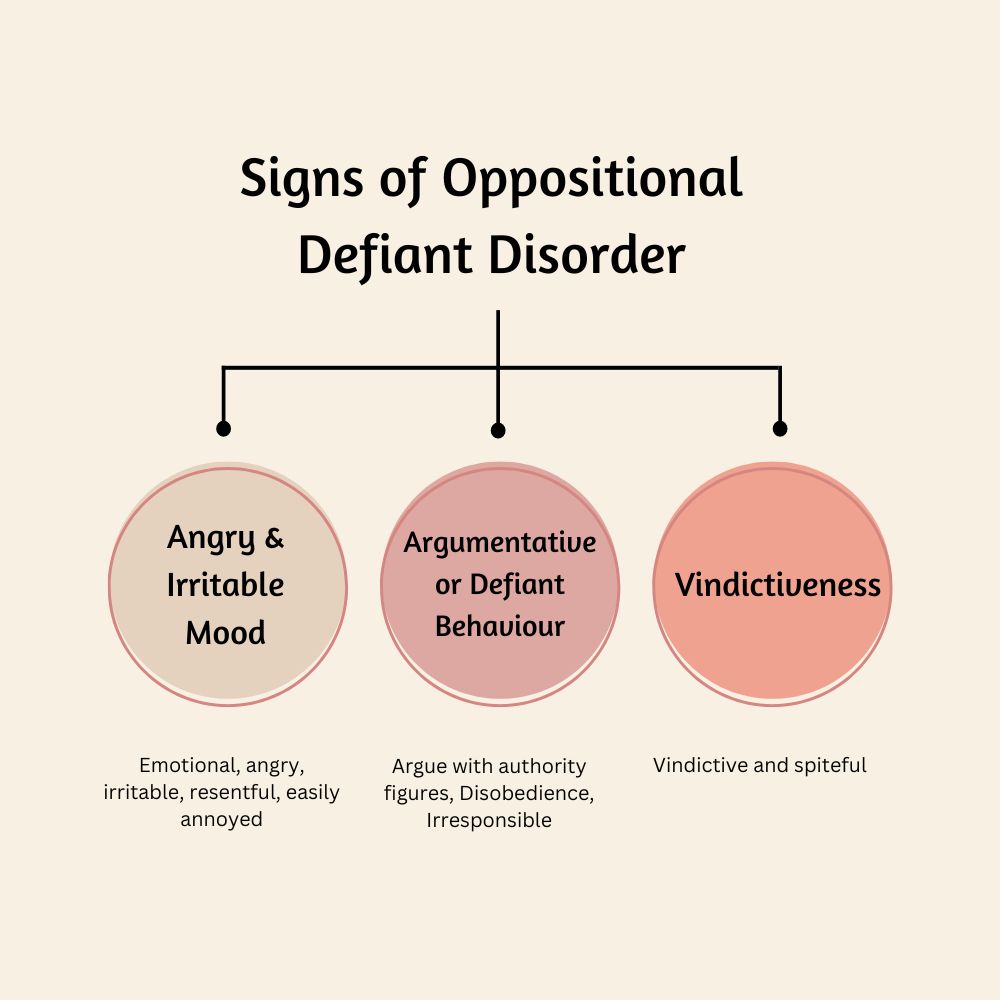What is Oppositional Defiant Disorder?

It is a Disruptive, Impulse-Control, and Conduct Disorder characterized by a childhood onset of disruptive behavior that involves problems with the self-control of emotions.
Recognition of the difference between a child with Oppositional defiant disorder (ODD) and a strong willed or emotional child is sometimes difficult. It’s normal to exhibit oppositional behavior at certain stages of a child’s development.
Oppositional Defiant Disorder generally begin during preschool years. Children with this disorder are uncooperative, defiant, and hostile toward peers, parents, teachers, and other authority figures. They are more troubling to others than they are to themselves. A child with ODD may argue a lot with adults or refuse to do what they ask. He or she may also be unkind to others.
These behaviors cause significant impairment with family, social activities, school etc.
Signs & Symptoms
- Angry and Irritable Mood: Emotional, angry, irritable, resentful, easily annoyed
- Argumentative/ Defiant Behavior:
- Argue with authority figures
- Disobedience
- Break rules purposely
- Blame others. Not responsible for their action.
- Vindictiveness: Vindictive and spiteful.
References
- Diagnostic and Statistical Manual of Mental Health Disorders. DSM 5 TR 2022
- Kaplan and Saddocks. Synopsis of Psychiatry. 12th edition. 2022
- Oppositional Defiant Disorder in Children. Johns Hopkins Medicine
